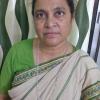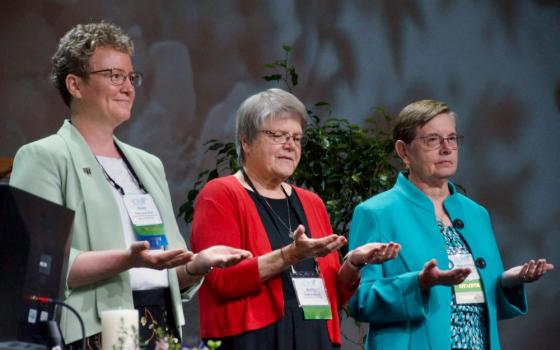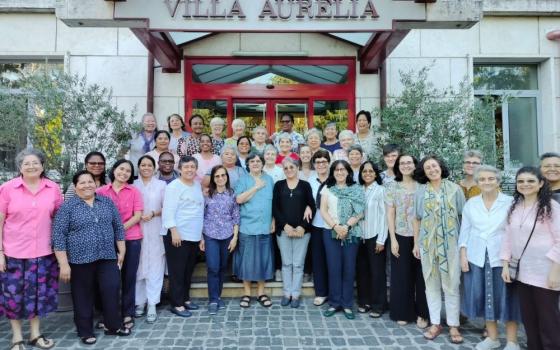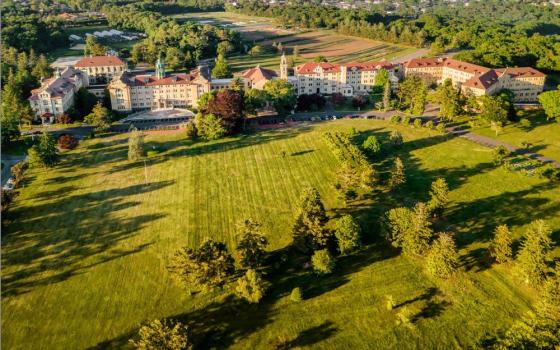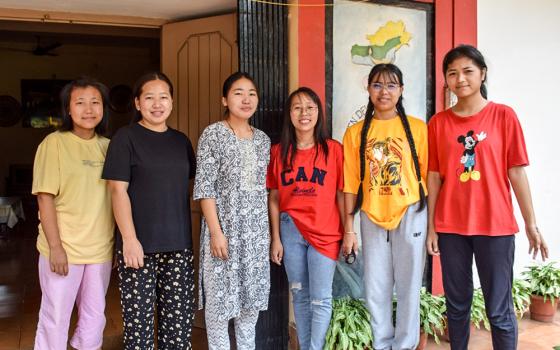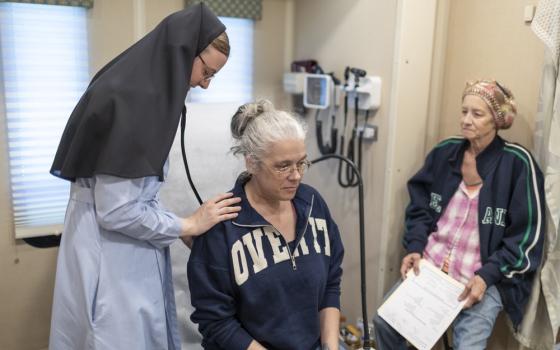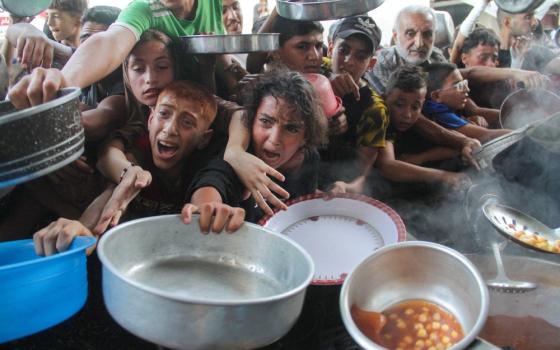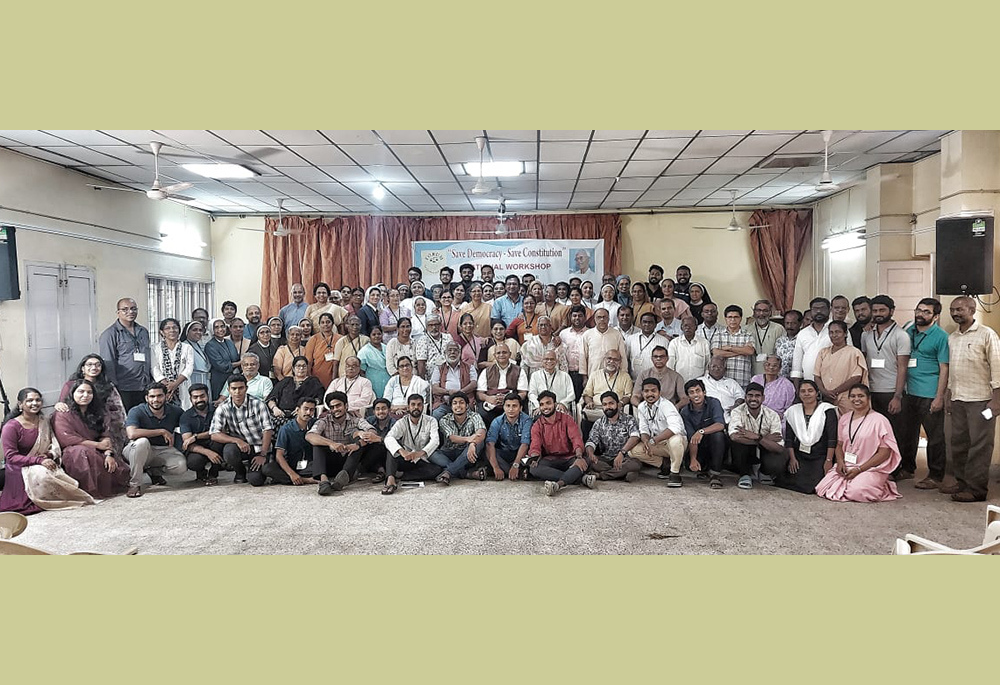
Delegates representing about 40 religious congregations of men and women at the national workshop "Save Democracy-Save the Constitution" gathered Oct. 12-14, 2023, in Travandrum, Kerala state, India. (Courtesy of Dorothy Fernandes)
The Forum of Religious for Justice and Peace, a solidarity group of religious women and men established in 1987, has been actively working for justice in the church and society at large. Our membership is deeply engaged at the grassroots level with communities on the periphery, taking up their issues for the cause of justice. Recently, we organized a national workshop Oct. 12-14, 2023, in Trivandrum, Kerala.
The workshop was attended by about 80 delegates representing 40 religious congregations of men and women from 12 states of India. Focused on the theme "Save Democracy-Save the Constitution," the workshop aimed to reflect on the country’s scenario and the threat to our sacred document — the constitution of India.
The regents of the Franciscan congregation set the tone for the workshop with a powerful skit, capturing the theme effectively. Despite witnessing this daily, the display provided a perspective that left the delegates speechless and gave us the impetus to deliberate and reflect together.
Renowned figures, like Msgr. Eugene Pereira, vicar general of the Latin Diocese of Trivandrum; John Dayal, a Christian activist and renowned journalist; the Rev. Valson Thampu, retired principal of St. Stephen’s College, Delhi; and Vinod K. Jose, renowned freelance journalist associated with The Caravan, shed light on the current scenario, inviting us to a deeper reflection. Group discussions offered the opportunity for each delegate to share insights and be enriched by the wisdom of others. It also opened the doors to new thinking; the changing scenario in the country invites us to enlarge our scope of influence, to become truth seekers, and be authentic in our search.
The workshop presented four formulas as a way forward: focus on investigating problems; negotiate by facing and engaging with challenges; devise creative, flexible action; and regroup to assess what works and strategize accordingly.
Advertisement
Direct engagements included a presentation on the threats faced by coastal Indigenous people, emphasizing the threat of the capitalist corporate governments to their livelihoods. The presenter was born on the coastal area and has pursued his studies to prove that the sea and the coast belongs to the Indigenous people.
A panel of three from the Northeast highlighted the trauma and violence inflicted upon the communities in Manipur. The divide and enmity have deeply wounded the people who have become victims of violence. Manipur, in the northeast state of India, has been experiencing violence since May 3, amid allegations the violence is state-sponsored. The conflict began with a violent attack on the hill tribals, resulting in a huge loss of lives, livelihood and untold misery.
This prompted some participants to visit Manipur for an exposure and to offer support and solidarity to those suffering. Additionally, information about the World Social Forum 2024 to be held in Kathmandu, Nepal, was also shared, emphasizing the importance of immediate decisions regarding registration and accommodation.
At the end, an interview with Arundhati Roy was enriching as she discussed the state of affairs in the nation. She was very forthcoming sharing her views on Manipur, Palestine and the conflictual situation in the country. A public meeting was organized where the archbishop of Trivandrum, a Madhya Pradesh Congress member, and other dignitaries endorsed the need to uphold the constitutional values.
The three-day workshop compelled the delegates to work towards a strategic, time-bound action plan — something to take back home to share with the other members of their units. This was acknowledged as a do-or-die situation, and was agreed upon by all the delegates. Subsequently, the delegates returned to work vigorously during the next six months. Further, they were motivated to work with other groups and civil society organizations, aiming to network and bring forward the dream of preserving our nation's secular, socialist inclusive approach — the ethos of our country.
This program has instilled in the participants the belief that even a small group of committed individuals can bring about the necessary changes for a harmonious society. The upcoming general elections in the country, scheduled for May 2024, are crucial for the future of India. A campaign is underway to save the democratic values of the country. We hope and pray that the efforts of the secular-minded people will bear fruit for future generations.
